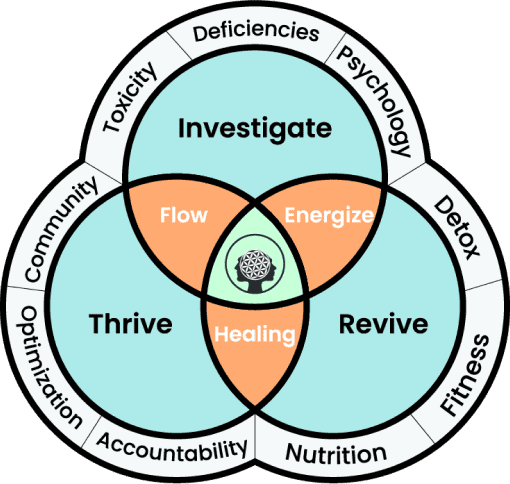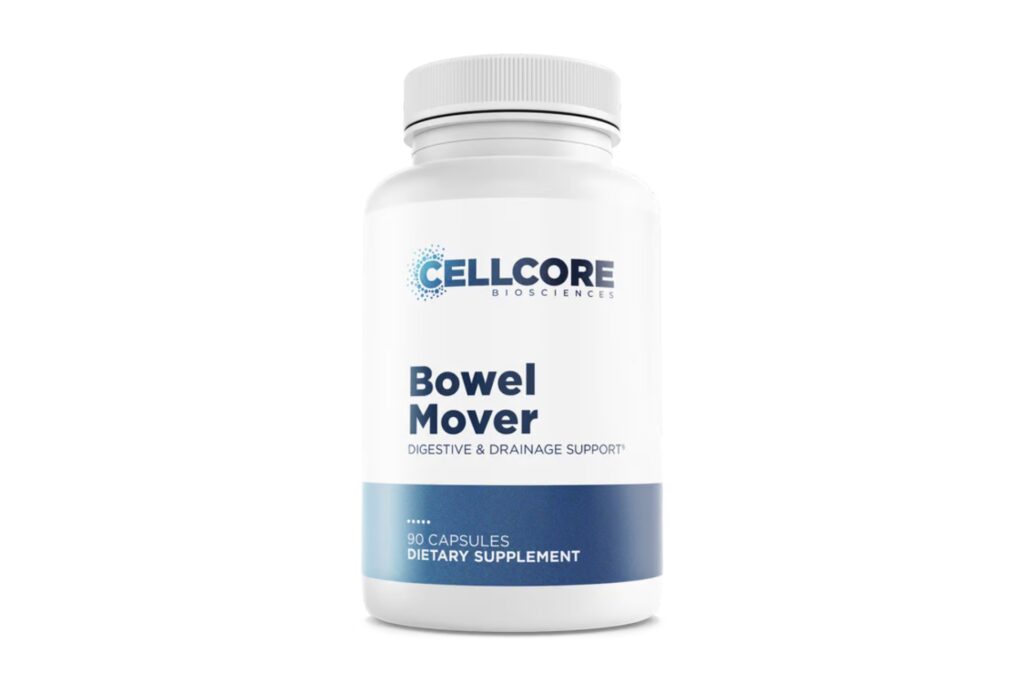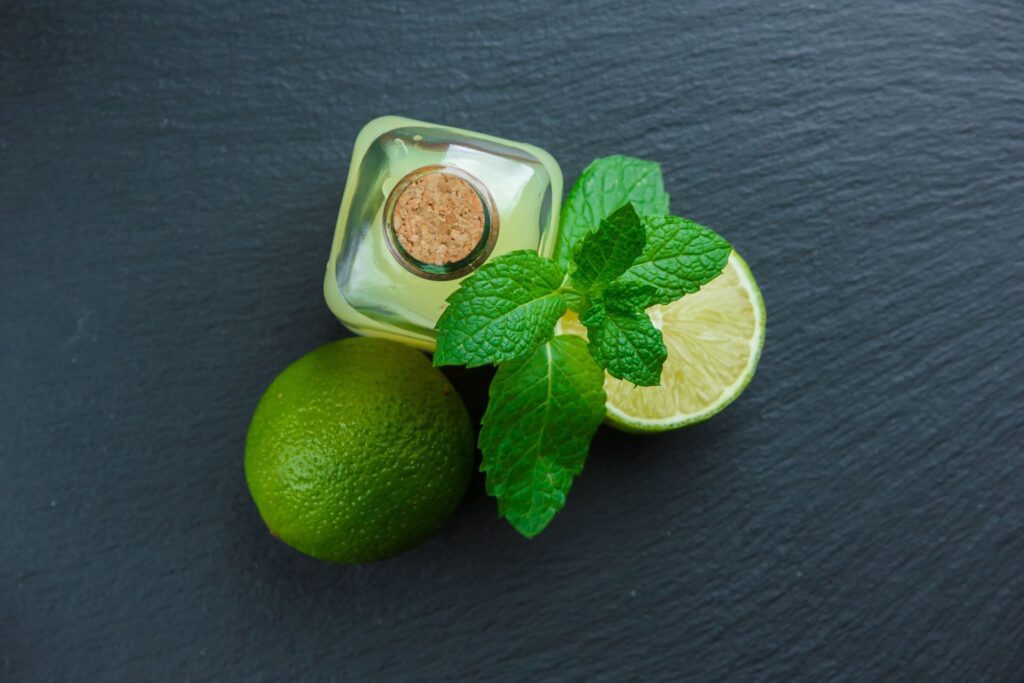Imagine your gut as a castle with strong walls that protect your body from unwanted invaders. However, when you have a leaky gut, those walls become damaged, allowing harmful substances to escape and wreak havoc in your body.
So, if you want to fortify your gut and reclaim your health, let’s dive into the importance of some diet when you have a leaky gut.
What is a Leaky Gut and How Does it Impact Your Health?
Digestive problems are a relatively common health issue in the United States. In fact, the National Institute of Diabetes and Digestive and Kidney Diseases (NIDDK) estimates that a whopping 60-70 million Americans are affected by digestive diseases.
That’s approximately 20% of the entire US population and you may be one of them who can be suffering from a leaky gut. Leaky gut is a condition where the lining of the intestines becomes overly porous, allowing harmful substances like toxins, undigested food particles, and bacteria to leak into the bloodstream.
Revitalize your Gut Health with a Leaky Gut Diet
A leaky gut diet is a powerful way to transform your gut health and support your overall well-being. This type of diet is all about reducing inflammation in the gut, promoting healthy digestion, and boosting the growth of beneficial gut bacteria.
To get started, you’ll want to eliminate or reduce certain foods that are known to be problematic for gut health. This is what may be referred to as an “elimination diet.” That includes gluten, dairy, sugar, processed foods, and alcohol. Instead, focus on nutrient-dense whole foods like fresh vegetables, fruits, lean proteins, and healthy fats.
Proponents of the leaky gut diet also recommend taking certain supplements, like probiotics, digestive enzymes, and glutamine. These can help support your gut health and improve your overall well-being.

Leaky Gut Diet: Foods to Eat for Gut Healing
Diet plays a crucial role in the management and treatment of a leaky gut. When you have a leaky gut, the lining of your intestines becomes damaged. By making dietary changes, you can help reduce inflammation, support gut healing, and improve your overall health.
Here are some diet tips which can be important when you have a leaky gut:
1. Low-Inflammation Diet
A low-inflammation diet is a way of eating that focuses on reducing the consumption of foods that can cause inflammation in the body. A low-inflammation diet is a way of eating that focuses on reducing the consumption of foods that can cause inflammation in the body.
2. Gluten-Free Diet
Some people need to follow a gluten-free diet because they have a condition called celiac disease, which is an autoimmune disorder that causes the body to attack the small intestine when gluten is consumed. For people with celiac disease, consuming gluten can lead to severe digestive issues, nutrient deficiencies, and other health problems.
3. Dairy-Free Diet
A dairy-free diet is a dietary approach that involves avoiding all sources of dairy products, including milk, cheese, yogurt, and butter. Some people may choose to follow a dairy-free diet due to lactose intolerance, a condition where the body cannot fully digest lactose, a type of sugar found in dairy products. Others may choose to eliminate dairy due to allergies that may damage the gut, intolerances, or personal preferences.
4. High-Quality Protein
Proteins are essential for the growth and repair of body tissues, including the intestinal lining. High-quality proteins, such as those found in lean meats, fish, eggs, and plant-based sources like beans and legumes, contain important amino acids that are necessary for tissue repair and regeneration. Consuming high-quality protein can be beneficial for those with leaky gut.
5. Vegetables and Fruits
A diet rich in vegetables and fruits are widely recognized as being beneficial for those with a leaky gut. These foods are an excellent source of fiber, vitamins, minerals, and antioxidants, all of which can contribute to improved gut health and overall well-being.
Adequate fiber intake is especially important for promoting healthy digestion and regular bowel movements, which can reduce inflammation and support optimal gut function.
6. Fermented Food
Fermented foods such as sauerkraut, kimchi, kombucha, kefir, and yogurt contain live microorganisms that can help to restore the balance of gut bacteria, which is often disrupted in individuals with leaky gut. These probiotic-rich foods may also help to reduce inflammation, support immune function, and improve overall digestive health.
7. Healthy Fats
Healthy fats are an essential component of a gut-healing diet, especially for those suffering from leaky gut. Rich sources of healthy fats include fatty fish, seeds, nuts, avocados, and olive oil.
These foods are loaded with omega-3 fatty acids, monounsaturated and polyunsaturated fats, and antioxidants, which have been shown to reduce inflammation, support gut healing, and improve overall health.
8. Bone Broth
Bone broth has been used for centuries as a healing elixir for various ailments, including gut health. The broth is made by simmering bones and connective tissue from animals, typically beef or chicken, for an extended period of time, which extracts the nutrients and minerals from the bones into the liquid.
One of the key nutrients found in bone broth is collagen, a protein that helps to maintain the integrity of the gut lining. Consuming collagen-rich bone broth has been shown to help repair and strengthen the gut lining, which can reduce inflammation and improve overall gut health.
In addition to collagen, bone broth is also rich in amino acids, such as glycine and proline, which can help to reduce inflammation and support the growth of beneficial gut bacteria. It’s also a good source of minerals like calcium, magnesium, and potassium, which are important for maintaining optimal gut function.
9. Probiotics and Prebiotics
Probiotics and prebiotics are both important for maintaining optimal gut health which you can incorporate into your leaky gut diet.
Probiotics are live microorganisms that can provide health benefits when consumed in adequate amounts. They are commonly found in fermented foods like yogurt, kefir, kimchi, sauerkraut, and kombucha. Probiotics can help to increase the abundance of beneficial bacteria in the gut, which can improve digestion, boost the immune system, and reduce inflammation.
Prebiotics, on the other hand, are non-digestible fibers that serve as food for the beneficial bacteria in the gut. They are found in a variety of plant-based foods such as garlic, onions, leeks, asparagus, bananas, and chicory root.
By consuming prebiotics, you can help to nourish the good bacteria in the gut and support their growth and activity. If you’re looking for a solution to improve your digestive wellness, you might want to check out this revolutionary MegaSporeBiotic from the Microbiome Labs that’s specifically designed to support and promote gut health.

Foods to Avoid for Improved Gut Health
If you’re dealing with a leaky gut, then you know how challenging it can be to manage its symptoms because diet also plays a crucial role in gut healing. Here are some foods you might need to avoid if you are on a leaky gut diet:
1. Processed foods and refined sugars
Processed foods often contain additives, preservatives, and artificial ingredients that have the potential to irritate the gut lining and cause inflammation. Furthermore, the consumption of processed foods is frequently associated with a high intake of refined sugars. These sugars can nourish harmful bacteria in the gut, promoting the growth of yeast and other potentially pathogenic microorganisms.
The balance of gut bacteria can be further disrupted by refined sugars, which can exacerbate the development of a leaky gut. Studies have shown that diets high in refined sugars can increase intestinal permeability and inflammation, thereby exacerbating leaky gut symptoms.
2. Gluten-containing grains
Gluten-containing grains contain a protein called gluten, which can be difficult to digest for some individuals, leading to inflammation and irritation of the intestinal lining.
3. Dairy products
When individuals with leaky gut consume dairy products, the casein protein can be difficult to break down, leading to inflammation and irritation of the gut lining.
Dairy products contain a protein called casein, which can be difficult to digest for some individuals and may contribute to the development or exacerbation of leaky gut syndrome. Furthermore, dairy products may also contain lactose, a type of sugar that can be challenging for some individuals to digest.
4. High-sugar fruits
High-sugar fruits have the potential to exacerbate leaky gut due to their ability to nourish harmful bacteria in the gut, consequently leading to inflammation and disruption of the gut microbiome. Furthermore, certain high-sugar fruits, such as mangoes and pineapples, are known to contain enzymes that have been linked to the breakdown of the intestinal lining, further aggravating the leaky gut condition.
5. Alcohol and caffeine
It is important to note that both alcohol and caffeine can have negative impacts on the gut, potentially worsening the condition of a leaky gut.
Alcohol, for instance, can increase the permeability of the intestines and cause inflammation in the gut. This, in turn, can weaken the intestinal lining, leading to the worsening of leaky gut symptoms. Furthermore, alcohol also affects the balance of gut bacteria, leading to the disruption of the gut microbiome, which is crucial for maintaining optimal gut health.
On the other hand, caffeine can cause inflammation in the gut, causing irritation in the digestive system. Moreover, it can also stimulate cortisol production, leading to stress and further disruption of the gut microbiome.

Frequently Asked Questions with Leaky Gut Diet
Are there any risks associated with the Leaky Gut Diet?
While the leaky gut diet can offer a powerful way to transform your gut health and support your overall well-being, it’s important to be aware of potential risks. Eliminating entire food groups can lead to nutrient deficiencies, so it’s crucial to make sure you are getting all the necessary nutrients from other sources.
Additionally, some supplements recommended for a leaky gut diet may interact with medications, so it’s always best to consult with a healthcare professional before taking any supplements.
Does the Leaky Gut Diet help with chronic diseases?
While the leaky gut diet can certainly reduce inflammation and promote healthy digestion, it’s important to keep in mind that it may not necessarily be a cure-all for chronic diseases. Chronic diseases are complex and multifaceted, and managing them often requires a personalized and comprehensive approach.
That’s why it’s crucial to work closely with a healthcare professional to develop a treatment plan that’s tailored to your unique needs and takes into account all aspects of your health. While the leaky gut diet may be a beneficial component of such a plan, it’s important to approach it as just one part of a larger strategy for managing chronic disease.











Leave a Reply
You must be logged in to post a comment.